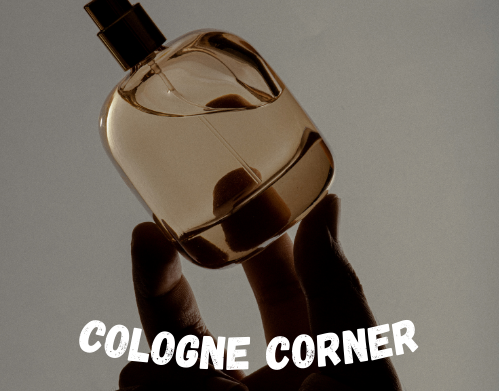This post may have affiliate links, meaning we earn a small commission on purchases through the links (at no extra cost to you). This does not change our opinion but does help support the site. Thank you!
Unlocking the enigmatic world of perfumes, we delve into a chilling question that lingers amidst the scented haze: Do perfumes freeze?

No, perfumes do not freeze under normal conditions. The carefully formulated chemical composition ensures that perfumes remain in a liquid state even at low temperatures.
However, exposure to extreme cold can impact their stability and fragrance. Proper storage is essential to maintain the quality of perfumes.
Fragrances have the power to transport us to distant memories and evoke deep emotions, but can they withstand the icy grip of winter?
In this guide, we’ll go through the key information you need to know about perfumes and their freezing points.
Do Perfumes Freeze?
Yes, perfumes freeze when temperatures go below -200 C. So, perfumes have the potential to freeze when exposed to extreme low temperatures.
The composition of perfumes, primarily consisting of volatile essential oils, can solidify and thicken as the temperature drops.
Typically occurring between -10°C and -20°C, the freezing point of perfume leads to a more sluggish and viscous consistency. However, the fragrance itself remains intact.
Interestingly, those residing in colder climates may experience extended longevity of their perfumes during winter months. The chilly weather inhibits the evaporation of essential oils, resulting in a more lasting scent.
To maximize your perfume’s lifespan, it is advisable to store it in a cool and dark location, ensuring it remains in its liquid form.
Does Temperature Affect Cologne?
Temperature does indeed have an effect on cologne, particularly due to its ethanol concentration.
With alcohol contents ranging from 80% to 95%, the freezing point of cologne is largely influenced by this factor.
The higher the ethanol concentration, the less likely the cologne is to freeze. Furthermore, the type of glass bottle used for cologne storage also plays a significant role in the freezing process.
However, it is intriguing to note that colognes, formulated with a blend of alcohol and essential oils, rarely freeze. This rarity adds to the surprise when encountering a frozen cologne.
Curiosity prompted us to conduct experiments, aiming to determine whether cologne freezes at the typical freezing point.
Does Putting Perfume in The Fridge Make It Last Longer?
Storing perfume in the fridge can indeed contribute to prolonging its lifespan and maintaining its scent quality.
Perfumes are complex compositions of volatile compounds and delicate aromatic molecules. Exposure to heat, light, and air can lead to oxidation and degradation, causing the fragrance to lose its potency and alter its aroma.
By refrigerating perfumes, you create a cooler and more stable environment that slows down the chemical reactions responsible for scent breakdown.
The lower temperature helps preserve the integrity of the fragrance, reducing the chances of evaporation and oxidation. This can result in a longer-lasting and more consistent olfactory experience.
However, it’s important to exercise caution when refrigerating perfumes. Follow these guidelines for optimal preservation:
- Store perfumes in their original packaging or in airtight, light-protected containers to shield them from exposure to air and light.
- Place the perfume in a dedicated compartment or section of the fridge, away from strong odors and food items.
- Avoid sudden temperature fluctuations by allowing the perfume to reach room temperature before using it.
- Keep in mind that some perfumes may become thicker in consistency when cooled, but this does not affect their scent quality.
While refrigeration can help extend the lifespan of perfumes, it’s essential to note that other factors, such as the fragrance’s composition and ingredients, storage conditions, and overall quality, also play a role.
It’s advisable to check the manufacturer’s recommendations or consult with fragrance experts for specific guidance on storing your perfumes.
Does Perfume Change in Cold?
When exposed to cold temperatures, perfumes can undergo certain changes. The effects of cold on perfumes vary depending on their composition and the severity of the cold conditions.
In colder temperatures, perfumes may become more viscous or thicker in consistency. This change in texture is due to the cooling effect on the volatile compounds and oils present in the fragrance.
However, it’s important to note that this change in consistency does not necessarily affect the scent quality or performance of the perfume.
Additionally, extreme cold can potentially cause fragrances to freeze or solidify temporarily. Once the perfume is brought back to room temperature, it should return to its normal state without any lasting impact on its fragrance.
It’s worth mentioning that storing perfumes in the refrigerator for extended periods is not recommended, as frequent temperature fluctuations can degrade the fragrance and compromise its quality over time.
Conclusion
In conclusion, the question of whether perfumes freeze has been unraveled, revealing a captivating truth. While perfumes may experience slight changes in texture or even temporarily solidify in extremely cold temperatures, their essence remains resilient.
Fragrances defy the icy grip of winter, preserving their aromatic allure despite the frosty challenges.
However, it’s crucial to handle perfumes with care, avoiding frequent temperature fluctuations that could compromise their quality.
